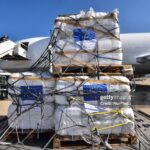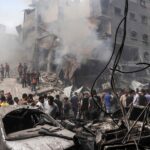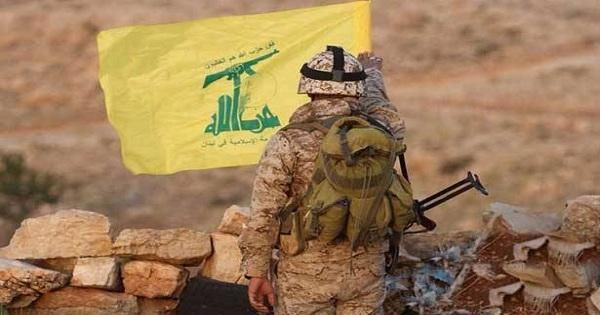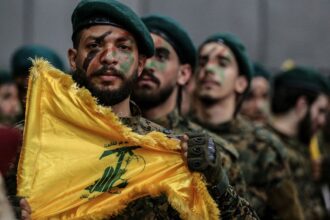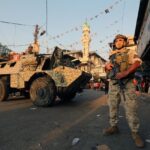Part 1
Part 2
Read Part 3
During the visit and in comments in front of the press , U.S. Senator Lindsey Graham made a pointed declaration:
“We’re here because Lebanon’s pluralism is worth protecting. This country represents the best of the Middle East—if it’s allowed to flourish without weapons in the hands of factions.”
This remark, seemingly straightforward, reveals the deeper strategic rationale behind the U.S. campaign to encourage the disarmament of Hezbollah. Far from merely a geopolitical maneuver to weaken Iran’s influence in the Levant, the U.S. has framed its policy as a defense of Lebanon’s multi-confessional fabric—a model of coexistence that has long been both the country’s pride and its vulnerability. This essay explores how the U.S. is leveraging the language of minority rights and pluralism to build consensus around disarmament and how that message resonates—or fails to—with Lebanon’s complex domestic actors. Framing Hezbollah’s disarmament not simply as a U.S. security concern but as a necessary step to preserve Lebanon’s multi-confessional democracy marks a notable shift in tone and substance. The United States is positioning itself not just as a counterweight to Hezbollah or Iranian influence, but as an advocate for Lebanon’s coexistence model—one in which Christians, Sunnis, Shiites, Druze, and others can share power peacefully under a unified state.
Why Minorities Matter in U.S. Foreign Policy
The U.S. has long used the language of minority protection and religious freedom to frame its foreign policy, especially in conflict zones. This framing accomplishes three goals: it lends moral legitimacy to its actions, enhances soft power, and positions the U.S. as a stabilizing force rather than an occupier or aggressor.
In Lebanon, this approach resonates deeply. The country’s confessional system, though flawed and outdated in some respects, remains an example of political compromise and cultural coexistence in a fractured region. By invoking this pluralistic identity, U.S. officials appeal to a broader Lebanese audience—beyond politics and militancy—anchoring their case in shared national values rather than external pressure.
Disarmament as a Path to Sovereignty
At the core of the U.S. delegation’s message was a straightforward proposition: that Lebanon can only reclaim its sovereignty and stability when the monopoly of armed force is returned to the state. Hezbollah, while a political actor with a constituency, continues to maintain a powerful and independent military structure—a fact that undermines both the Lebanese Armed Forces and the legitimacy of the central government.
Senator Graham and others made it clear that U.S. support, along with billions in regional investment, is contingent on disarmament. But crucially, they reframed disarmament not as a sectarian attack, but as an inclusive, consensus-driven process that protects all Lebanese communities—especially minorities—by restoring rule of law and reducing the risk of internal conflict.
This shift in framing is critical. By presenting Hezbollah’s disarmament as a collective national interest, rather than a Shiite-specific issue, the U.S. builds a narrative that can be embraced by Christians, Sunnis, Druze, and even moderate Shiites—many of whom feel caught between sectarian militias and a failing state.
Hezbollah’s Counter-Narrative
Unsurprisingly, Hezbollah has rejected the U.S.-backed plan as a foreign attempt to weaken Lebanon’s resistance posture. Its leadership continues to frame its armed presence as essential for deterring Israeli aggression and maintaining national security.
Yet internally, Hezbollah faces new pressures. The shifting regional landscape—including Syrian-Israeli dialogue, thawing Gulf-Lebanon ties, and growing economic strain—may push the group to consider partial disarmament or restructuring. U.S. officials have signaled that political integration and security guarantees remain on the table if Hezbollah chooses to lay down its arms.
Lebanon at a Crossroads
The stakes are high. The Lebanese government has pledged to present a disarmament roadmap by August 31, under increasing pressure from Washington, Paris, and Gulf capitals. If it succeeds, it may unlock substantial international aid, Israeli troop withdrawals from contested areas in the south, and broader diplomatic normalization.
If it fails, Lebanon risks further isolation, deepening economic collapse, and the entrenchment of armed fragmentation.
Yet, despite the complexity of the challenge, the message from the U.S. delegation has offered a coherent vision: that a sovereign, pluralistic Lebanon is still possible—and still worth fighting for diplomatically. Disarmament is not a Western demand imposed from above; it is a Lebanese imperative, grounded in the shared hope of a future without militias, without fear, and without sectarian domination.
The U.S. strategy in Lebanon today reflects a calculated blend of values and interests. By placing Lebanon’s pluralism at the center of its message, Washington is not only confronting Hezbollah—it is attempting to unite a fractured society around a vision of inclusive sovereignty.
Whether that message will resonate across Lebanon’s diverse and often divided political landscape remains uncertain. But in choosing to emphasize coexistence, minority protection, and national dignity, the U.S. is offering a rare thing in today’s Middle East: a vision of peace not built on power alone, but on shared identity.



